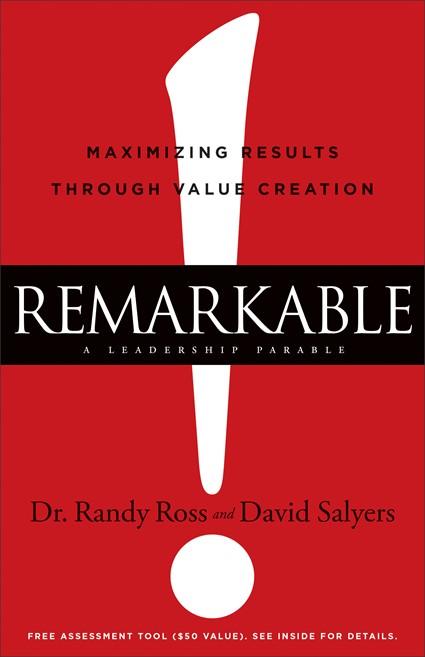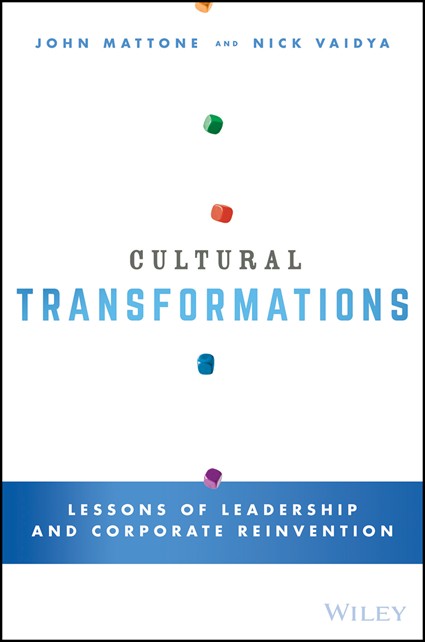Take Your Values And Make Them Your Cause
Most companies have corporate values that they hope embody their company, their employees, and the way they wish to be viewed by the public. Unfortunately, many organizations’ values statements are pages long. Too dense to be remembered and too complex to be ingrained in the company culture. Ours were.
We’ve learned there is power in simplicity, and that is why we at National Life Group have shifted our focus to three simple, authentic values: Do good. Be good. Make good. Just six words, but we’ve been able to translate them to a cause and a mission that drives everything we do. You and your company can do the same.
Hi there! This article is available for free. Login or register as a StrategyDriven Personal Business Advisor Self-Guided Client by:
Subscribing to the Self Guided Program - It's Free!
About the Author

, by Drs. Jackie and Kevin Freiberg, about the power of creating cause-related companies.
National Life Group® is a trade name of National Life Insurance Company, Montpelier, VT, Life Insurance Company of the Southwest, Addison, TX, and their affiliates. Each company of National Life Group is solely responsible for its own financial condition and contractual obligations. Life Insurance Company of the Southwest is not an authorized insurer in New York and does not conduct insurance business in New York.
References
1. American Enthusiasm to Shop with a Conscience at Record-High, but Doubts About Corporate Impact Persist, Cause Marketing Forum, October 2013. http://www.causemarketingforum.com/site/apps/nlnet/content2.aspx?c=bkLUKcOTLkK4E&b=6430205&ct=13344211¬oc=1
2. Culture of Purpose, Deloitte, 2014. http://www2.deloitte.com/content/dam/Deloitte/us/Documents/about-deloitte/us-leadership-2014-core-beliefs-culture-survey-040414.pdf
3. 2014 Edelman Trust Barometer Executive Summary, Edelman, 2014. http://www.scribd.com/doc/200429962/2014-Edelman-Trust-Barometer#fullscreen

 Green/social change business profitability expert Shel Horowitz, “The Transformpreneursm,” shows you how profit by greening your business, turning hunger and poverty into sufficiency, war into peace, and catastrophic climate change into planetary balance. Shel’s 10th book,
Green/social change business profitability expert Shel Horowitz, “The Transformpreneursm,” shows you how profit by greening your business, turning hunger and poverty into sufficiency, war into peace, and catastrophic climate change into planetary balance. Shel’s 10th book,  It has been said that powerful questions can steer any conversation away from problems and personalities and move them toward meaningful solutions. Powerful questions evoke insight, stir creativity, inspire collaboration and help craft a culture of accountability.
It has been said that powerful questions can steer any conversation away from problems and personalities and move them toward meaningful solutions. Powerful questions evoke insight, stir creativity, inspire collaboration and help craft a culture of accountability. Dr. Randy Ross is founder and CEO (Chief Enthusiasm Officer) of
Dr. Randy Ross is founder and CEO (Chief Enthusiasm Officer) of  But culture can’t be static, and CEOs and other executives can’t be static either. Knowing what you and your company stand for and being completely unyielding and inflexible are different things. The world of business is in constant transformation mode, so an adaptable company culture isn’t just nice to have, it’s necessary.
But culture can’t be static, and CEOs and other executives can’t be static either. Knowing what you and your company stand for and being completely unyielding and inflexible are different things. The world of business is in constant transformation mode, so an adaptable company culture isn’t just nice to have, it’s necessary. John Mattone is an authority on leadership, talent, and culture. An acclaimed speaker and executive coach, he advises Fortune 1000 senior leaders on how to create cultures that drive superior operating results. He is the author of seven books including
John Mattone is an authority on leadership, talent, and culture. An acclaimed speaker and executive coach, he advises Fortune 1000 senior leaders on how to create cultures that drive superior operating results. He is the author of seven books including